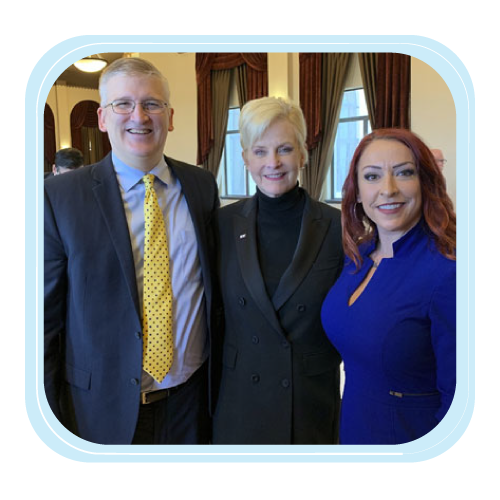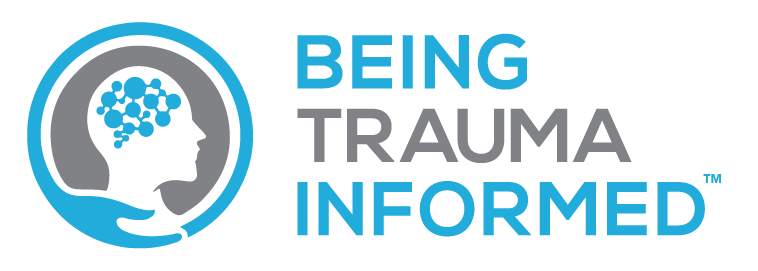About us
Being Trauma Informed
Interest in the impact of psychological trauma goes back at least to the first World War. But for years, the best folks could do was examine the differences in behavior, thoughts, and emotions, between traumatized and non-traumatized soldiers, patients or clients. But holy cow has the development of science both deepened what we can study and how we understand impact!
The problem for most non-scientists is making sense of that science. That’s where Being Trauma Informed comes in – our goal is to make the science accessible, understandable and even entertaining to learn.
Being trauma informed very simply means that you allow the science of trauma to influence both your professional and personal life. How do you do that if you don’t really understand the science?
Our hope is that you find resources here that ultimately make you more effective, both professionally and personally. Watch a video, visit a website on our resources page, or schedule a training/consultation – we have a lot to offer!


Dr. Chris Wilson, PsyD - Director
Dr. Chris Wilson is a retired licensed psychologist from Portland, Oregon. For eighteen years he worked with victims and perpetrators of crime, including for seven years with the Oregon Department of Corrections, and performed psychological evaluations. He currently trains nationally and internationally on a variety of issues including the neurobiology of trauma, vicarious trauma, and being trauma informed, and testifies as an expert in both civil and criminal trials.
He’s provided training, plenary, keynote, and breakout sessions for conferences and organizations across the United States, Canada, Italy, and Denmark, including the National District Attorney’s Association, US Department of Justice, the US Department of the Interior, the US Navy, Marine Corps, Army, and Air Force, the US Office for Victims of Crime, End Violence Against Women International, the National Organization for Victim Assistance, the National Crime Victim Law Institute, and the New York Police Department.
Dr. Wilson is a guest faculty member at the US Army’s Special Victim Capabilities Course where he teaches military criminal investigators about the neurobiology of trauma. He recently served as a curriculum consultant for The National Center for Campus Public Safety. He is also the co-author of the article “Understanding The Neurobiology of Trauma and Implications for Interviewing” (an abbreviated version of which was provided for Danish law enforcement in 2017) and “Judges’ and Juries’ Common Misperceptions About Domestic Violence Victims’ Behaviors.”
Dr. Wilson received his doctoral degree in clinical psychology from Pacific University in 2002. He was licensed as a psychologist in the state of Oregon in 2005 and retired his clinical license in August of 2021. For six years served on the Board of the Oregon Psychological Association. Raised in Andover, Massachusetts, he is a lifelong Boston Red Sox fan and in his spare time enjoys playing the guitar, rooting for his now hometown Portland Timbers, and playing “old man soccer” on weekends.
frequent questions
What does Being Trauma Informed mean?
Usually you hear the phrase “trauma informed care” or “practice trauma informed.” We chose the phrase Being Trauma Informed, because from our perspective it’s important to apply the science to every moment of our lives, beyond just our professional lives. This means we take the same science based approach to our own lives as we do the lives of those we help or even simply interact with professionally or in our personal lives. The science of trauma starts with recognizing that it’s not possible to know whether someone has been or is being affected by trauma in any given moment. The simplicity of that reality suggests that it would be wise to take the principles of what it means to be trauma informed home with us. Our families, friends, and even total strangers can benefit from the concrete ways the science suggests we interact with others. Think of Being Trauma Informed as a comprehensive way to approach life – sounds grand and maybe even a bit over the top, but the science suggests it’s absolutely where we should head if we are working with or have experienced trauma.
Why is being trauma informed important?
Over the last twenty years or so, research on how the brain responds to threat and how trauma affects this response has exploded with interest from first scientist and then many of us that work with trauma. Understanding this science helps us understand they why behind how an individual may respond to a threat (either physical or psychological – more on that fascinating science later) as well as what the impact of that response may be for the individual moving forward. This long term impact of trauma can affect communication, impulse control, the ability to regulate emotion, and many other aspects of an individual’s life. Without understanding how the brain (and therefore the individual) is affected by trauma, we can easily misinterpret behavior and emotion. These misinterpretations can lead to misunderstanding, which leads to missed opportunities to increase our effectiveness.
What does being trauma informed look like?
Some of being trauma informed can be seen in the form of how you interact with others and the way you approach your own life. Other aspects of being trauma informed are ways of making sense of the world that may not be easily seen, except for the fact that the way you make sense of the world affects how you treat ourselves and others. Concretely, it may look like changing the way you go about understanding “what happened” by starting to focus less on what happened and more on what the individual went through or experienced. It may look like changing the facial expressions, posture, and tone of voice you use when you communicate with others, or it may look like arranging your office differently, all based on the science!
How can Being Trauma Informed make me more effective?
The first step to Being Trauma Informed is to understand the science. Our expertise is in making the science accessible to those without a science background. We use real life examples that most of us can relate to, give you the chance to relate the science to your own life, and provide “ah ha” or lightbulb moments for folks so that most often reaction we get to our trainings is “I get it…the science actually makes sense now.” From there, we help you connect the dots to how the science can impact the way you work with people professionally, personally, and yes, how you treat yourself. Again, all based on the science. How cool is that?

